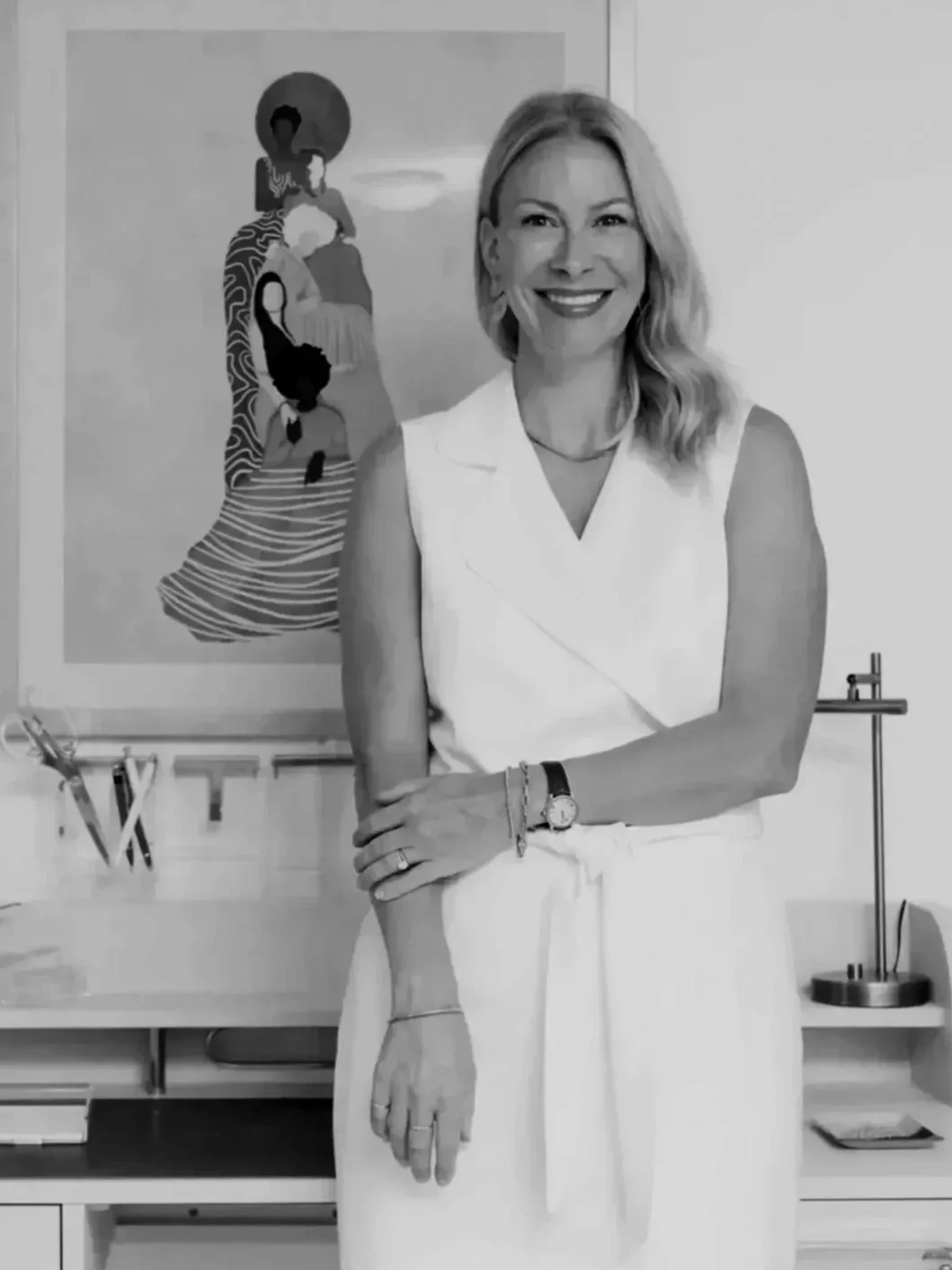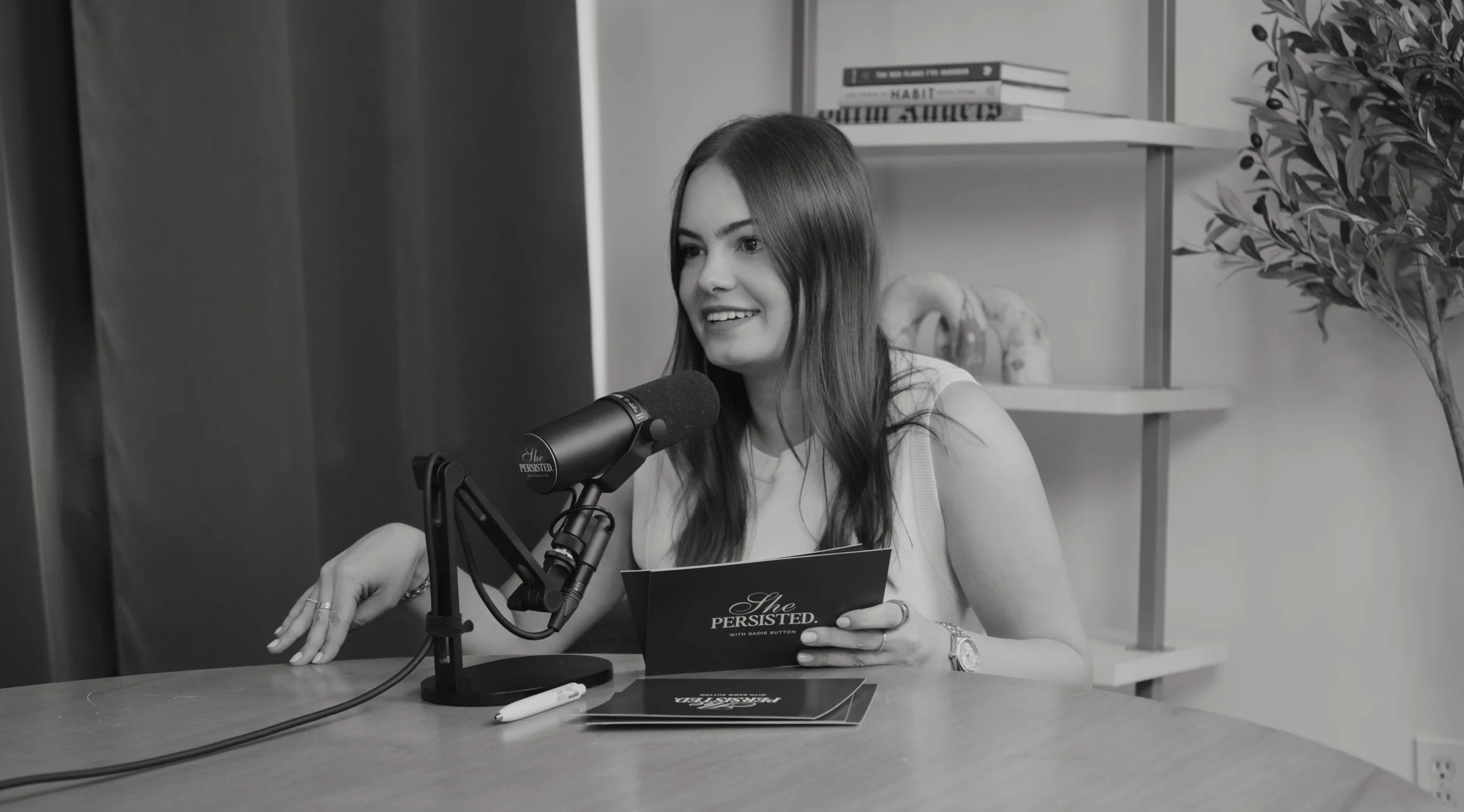230. a mental health plan you can actually follow
listen to this episode:
Tune in and subscribe on your favorite platform: Apple Podcasts | Spotify | YouTube | Amazon | GoodPods | Castbox | iHeart Radio | overcast | pocketcasts
in this week’s solo episode, i’m breaking down some of my favorite mental health frameworks to improve your mental health. one of the biggest mental health challenges is figuring out exactly where to start and what steps to take when you’re really struggling. this episode will be your guide to figuring out what order of operations you can use to get out of a crisis and stabilize your mental health.
i’ll cover topics including:
why we need an order of operations for our mental health
my troubled teen industry experience (order of operations gone wrong)
how maslow’s hierarchy of needs applies to your life
a sailboat model for your mental health needs
the dbt house of treatment model & how it works
ways that your biology and environment contribute to your mental health
a checklist you need to cover for your mental wellbeing
the importance of mastery for your mental health
Mentioned:
SHOP GUEST RECOMMENDATIONS: https://amzn.to/3A69GOC
About She Persisted
She Persisted is THE Gen Z mental health podcast. In each episode, Sadie brings you authentic, accessible, relatable conversations about every aspect of mental wellness. Expect evidence-based, Gen Z-approved resources, coping skills (lots of DBT), insights, and education in each piece of content you consume. She Persisted offers you a safe space to feel validated and understood in your struggle while encouraging you to take ownership of your journey and build your life worth living.
a note: this is an automated transcription so please ignore any accidental misspellings!
Sadie: [00:00:00] Welcome to She Persisted, the Gen Z Mental Health Podcast. I'm your host, Sadie Sutton. Let's get into it.
There's not a roadmap or a framework of, if you're struggling, start here. we don't have that for mental health. , And yet we need one
the number one piece of advice I find myself giving to people that are really in it when it comes to mental health challenges is I think not understanding this is what gets in the way of so many people improving their mental health and reaching their mental health goals.
This is where I think people go wrong.
We all have highs and lows. We all have ups and downs, but are those derailing your entire life?
The number one thing in life that predicts good mental health and good health and all these types of things is...
hello, hello, and welcome back to another episode of Sheep Resisted. I'm excited you guys are here Today we are gonna talk about something that I have very strong opinions on. It's something that's not talked about enough, but is relevant to anyone and everyone who has mental health goals.
And I think not understanding this is what gets in the way of so many people improving their mental health and reaching their mental health goals that they set for themselves.
So [00:01:00] understanding this framework and this context is going to help you achieve your mental health goals, build your life worth living and understand why the goals you've set in the past maybe haven't panned out. And if you guys leave this episode and want more information on how we can reach our goals, why so many people fail to reach the goals that they set. You should listen to the Grit Lab 1 0 1 recap and the episode with Angela Duckworth. we talk so much about that in both of those conversations and that part of human behavior is so relevant to executing the goals we set for ourselves once we understand how to properly use this framework.
So I'm gonna take you back to elementary school, middle school. Do you remember PDOs A perfect. Formula set of rules. If you follow a specific set of rules and do these things in this order, you will get not only the solution you're looking for, but the right answer, you will solve your problem and we don't have that for mental health. There's not a roadmap or a framework of, if you're struggling, start here.
if your mental health is bad, start with this thing. We don't have a [00:02:00] PEM DDoS. We don't have an order of operations, and yet we need one because,
The number one piece of advice I find myself giving to people that are really in it when it comes to mental health challenges is to just not make things worse. I think people get caught up in the idea of setting all these really ambitious goals or implementing completely new habits, or creating new behaviors and ending relationships and setting boundaries, again, with the goal of improving your mental health.
But you're in crisis. You're having daily panic attacks. You don't feel seen. You don't feel heard. You don't even have hope for your future. You don't feel like you deserve that life worth living. And if you don't have those basic things, you're not gonna reach those larger, really ambitious and complex goals that you're setting for yourself.
So my goal with this episode is to explain to you a number of different frameworks that exist related to this. Tell you about the pros and cons, and then tell you where to start with your mental health and then what to work up to [00:03:00] so that you are doing things in an order that makes sense.
Because without parentheses, we can't do exponents without exponents. We can't do, can you see me pausing to remember what PEM DDoS stands for, multiplication, et cetera. So this is a checklist of, is this thing in place? Is this set? Is this stable? Is this good to go? Okay, I'll move on to the next thing rather than trying to get to.
Addition and subtraction when you haven't worked through the parentheses. I hope I'm not losing you with this math metaphor. I'm losing myself and I'm the one explaining this. I also, when I was thinking about this episode and planning out how I wanted to approach this, it brought me back to my therapeutic boarding school days.
If you don't know, I went to a therapeutic boarding school in Montana for 14 months. It was the worst year of my life. It was a program in the trouble teen industry. Many an episode has been released on that many. An episode two come, I will talk about it for many years to come because there are so many incredible mental health resources out [00:04:00] there that when you're searching for help, you should never be met with non-evidence based care and unqualified treatment options.
So anyways, side tangent. There was kind of in order of operations there, this is very troubled teen industry. Ask, if you've been in one of these programs, you'll recognize this. But there was like a level system you went through accept, you went through orientation, acceptance, trust, action, stability, transition.
And if you hadn't oriented yourself to the program, you wouldn't move on to acceptance. If you hadn't accepted being there, you wouldn't move on to building trust if you weren't trusting yourself and had others trust in you, then you weren't ready to do the work on action.
If you didn't do the work on action, you couldn't be stable with those shifts and beyond stability. And if you weren't stable, you couldn't transition to going home. So as I was planning about this, I was like, this feels familiar. And then I was like, this is very different and based in a lot of research backed frameworks and evidence based intervention [00:05:00] and not a set of rules and.
not a level system you have to climb through to go home. So I just wanted to add that clarification that like, if that sounds vaguely related, this is different. This is not the same thing. This is an internal way for you to check if your needs are being met and understand how you can set yourself up for success and set mental health goals in a achievable, accessible, realistic way.
So I am going to give you guys a couple of different theories in this space. I did my best to mentally remember, okay, when have I seen things that resemble an order of operations in my psychology classes throughout treatment, listening to consuming mental health resources? Which one of those are relevant?
Which ones can I show you so you guys can see what sticks, what doesn't? I'm gonna add my commentary and criticisms on what I think is missing, and then we'll give ourselves like our own order of operations on where to start and what to do. You've probably heard of Maslow's Hierarchy of [00:06:00] Needs.
This is a pyramid hierarchy order of operations for emotionally, physically, spiritually thriving. And what's interesting, and we'll talk about this in a second, is that it wasn't actually a hierarchy. Like when Maslow created this, it wasn't presented as a pyramid that like you cannot pass, go and collect $200 unless you get one part of the pyramid met.
And yet, that's how it's taught. That's how it's been disseminated. That's how we think of Maslow's hierarchy of needs. But to give you guys a bit of an overview, Maslow's hierarchy of needs has five levels. The first is psychological needs. The next is safety and security. Following that is love and belonging. Second to the top is self-esteem, and the top of the pyramid is self-actualization, which when you're taught this in psychology classes, like some people don't even ever get to this point, right?
Like that's the goal, that's the end all be all. But like, not everyone gets to self-actualization. So I feel like those are some interesting terms. What do those mean?
Physiological needs, [00:07:00] these are the things that we require to survive.
So air, water, food, shelter, clothing, sleep, all of those are necessary for us to survive physically. If you haven't had water in 48 hours, you are not thinking about where, how's my self-esteem?
How am I talking to myself? If you don't have shelter, you are not thinking about how do I see myself in the context of the larger world? How am I contributing to the betterment of society? You mentally, physically cannot do that when those needs aren't met. so physiological needs are at the base of this pyramid.
Without those in place, we are not able to Pasco collect $200 and move up the pyramid. And this is one reason why. Sleep, food restriction or overeating. Things like that that we do to try and cope with our mental health challenges have such detrimental effects because the full pyramid falls [00:08:00] apart, right? Like if you're not sleeping regularly and you're not eating consistently, I don't want you to think about your self-esteem level. I don't want you to think about setting that boundary in that relationship because the pyramid on which all of that stands isn't solid, and you shouldn't be expected to be able to have that healthy relationship or rewire that core belief when those basic needs aren't met.
You're just setting yourself up for failure. You're working against yourself. So moving up the pyramid, we have safety needs, which is security and predictability in one's environment. This is one that I think we underemphasize, but is so important and you've probably heard, like mental health is really important to have a routine, like having the same day to day is really good for mental health. No, but like in a really real way, having that consistency, having that predictability, especially when your emotional state or your thoughts are so variable and unpredictable is incredibly important.
So safety needs includes your [00:09:00] personal security. So things like violence, crime more, et cetera. How we are exposed to those things in the media and online also is interesting and worth considering. Also, health and wellbeing, like is my physical health intact? What does my mental health look like? That safety need isn't established if your mental health is incredibly unstable and unpredictable.
Also, in there is the stability of your environment, financial security, a safety net, et cetera.
And so that's why, and we'll talk about this later, putting things in place with your mental health routine, like a predictable routine, a consistent morning and night, week to week activities that don't vary. Having that be secure and in place and help you feel physically and mentally safe is so important and you're working with yourself instead of against yourself.
moving up the pyramid, we have love and belonging, which includes social connection and acceptance. This includes family, friendships, community, romantic relationships, group membership, affection, intimacy, all of these things related [00:10:00] to connection. And if you look at all of the research done on psychology, if you look at all the outcomes, if you look at all the adverse outcomes, like the number one thing in life that predicts good mental health and good health and all these types of things is relationships.
We are social beings. We thrive in community. In absence of community, we struggle physically, mentally, we fall apart, we deteriorate. Like the number one thing we need in life, especially for our mental health, is relationships and connection. but then again, there's that caveat of if you don't have those physical needs met, And if you don't feel safe and stable, it's hard to show up in relationships and build that community and feel loved and accepted and, and like you belong.
Next on the pyramid is esteem, so recognition, competence, and respect. This is self-respect, respect from others, your reputation, feeling recognized, a sense of achievement.
This is something we see in mental health through mastery. Mastery is something that's really important and it's built [00:11:00] into DBT. I love the build mastery skill. It's one of my favorites. A because it builds that sense of like, I can do something, I'm improving, I'm growing, I'm getting better, and b. A lot of mental health is not trusting yourself.
not trusting yourself to weather the wave of this emotion or navigate this unstable period of time in your life or handle those scary thoughts or that uncertain conversation or this down period of your life.
There's so much that feels out of your control, and yet that feeling of mastery and confidence is something that we need as humans to thrive. And so when the very way you're operating is the opposite of that, it's really important to address that in other areas to make sure that cup is filled.
And so while I'm going through these, I'm also, I'm trying to highlight, but I hope you're also thinking about ways that these needs aren't being met because of your mental health and how that might be like overcomplicating your life. So like we talked about physiological needs, [00:12:00] if you're not sleeping properly and you're not eating consistently, again, the pyramid's falling apart.
If you don't have that sense of security and predictability in one's environment, obviously there's things outta your control. But I wanna talk about the way that you set your day-to-day routine, the activities you sign up for, , the commitments you make, the context you put yourself in, and then the relationship piece.
How are you isolating? How are you withdrawing from your relationships? Are you not sharing what you're going through? So even though you might be around others, you don't feel seen and connected and accepted because they don't know what you're navigating if the way that you're speaking to yourself when you're struggling is the opposite of self-respect and confidence and achievement.
How can we fill our lives with other things that supplement that, whether it's hobbies or. Activities that we are improving our abilities, how are we building mastery in other areas that then that can translate over to our mental health. And then top on the pillar is realizing one's full [00:13:00] potential.
Self-actualization. So this is creativity, personal growth, moral development, pursuing happiness, purpose-driven action, peak experiences, transcendence, insight. And this is where I think people go wrong. Like if you're struggling, you go there mentally. That's what you think about. Like how can I build this life where I am living my true purpose?
How can I be like, let me pursue that happiness. I wanna be happy and thriving. Let's get there. . Let me get on this personal growth journey to have peak experiences. But we're not getting there without all of these very foundational and necessary steps before that.
And we just think it'll come as a byproduct, but it's the exact opposite. Like people are like, I built this for you page, brick by brick. We have to build our mental health brick by brick. And if you don't have those bricks of your physiological needs, safety, love, and belonging and esteem, you're not gonna get to that self-actualization, creativity, personal [00:14:00] growth, all those things, , that come with the stability of having those other needs met.
So there's another idea from Scott Barry Kaufman. I heard about this, , in Angela Duckworth's class. I love this metaphor. It's fascinating and. The way he presents it is that he mentions that Maslow didn't present the hierarchy of needs as a hierarchy, right? Like he wasn't like it's a pyramid and without one you don't have the other.
It was more of like, we are all on this growth of betterment and improvement, and these are things that contribute. So Scott Barry Kaufman has this incredible visual, which we'll link in the show notes, but instead of a pyramid, we have a boat and I'm gonna visually explain it to you.
We'll also put it on the screen if you're watching the episode, But the water beneath your boat is security, and your boat is made of self-esteem, connection, and safety. And the sky, the wind behind your sails is growth. And the sails, the top of the boat, whatever you wanna call it, is purpose, love, and [00:15:00] exploration.
and so to quote from his article about it, he says, with holes in your boat, you can't go anywhere. All of your energy and focus is directed towards increasing the stability of the boat. The human needs that compromise the boat are safety, connection, and self-esteem. Security needs that under good conditions, work together toward greater stability.
Human beings are incredibly resilient. Even under adverse conditions, we find potential for momentum, the sale.
He explains that growth is at the heart of self-actualization, or as Maslow would come to describe it in his later writings, the transcendent experience of being fully human. Ultimately, in order to grow, we need to open up our sail and be vulnerable against the inevitable winds and waves of life.
We can still move in our most deeply valued direction, even among the unknown of the sea, to grow continually, day after day, move toward the best of what humanity is capable of. Growth is a direction, not a destination, and that's where the parts of the metaphor of the sale come in. Exploration, love, and purpose.
a dynamic sailboat is a better [00:16:00] metaphor for life than a pyramid because the key is not which level you reach, but the harmonious integration that you have within yourself and how that interacts within the world. You are a whole unit moving around in this world, and part of becoming the whole person requires this higher level integration of your security and your growth needs.
and so I really like this framework. I love the visual. I think it's very important. I love how he points out that even in adverse conditions, if there's a hole in your boat, if you're leaking self-esteem,
if your connection is lacking and your boat is flooding, you are still moving. You're still on the journey, you're still navigating the hardships of life. And as humans, we do that every day. And yet, like he mentions, if there is a problem and your boat is sinking, all of your energy is going to address that problem.
And you don't have the bandwidth and the capability to address things like purpose, love, and exploration, even though you know that like those are the things that get me where I wanna go. We again, miss that [00:17:00] foundation. And so my goal for this is that by better understanding how important that foundation is, and if we can get that solid, if we can get that to be stable and consistent and there no matter what. Putting our energy towards the growth and the sail of the sailboat will actually get us somewhere versus going in that direction while also putting out like 57,000 fires along the way.
And again, this is where I think people get it wrong, which is that we want growth, right? We want exploration, we want love, we want purpose. Like that's the outcome we're looking for. So why wouldn't we go towards that? But without the security of safety, connection, and self-esteem, we'll never get there.
And so if we can think about those really foundational and important needs and address those before going towards growth, you're not fighting against yourself.
So now here's where we get to my favorite model, which is the DBT House of Treatment. And you don't get this every time you do DBT. They might kind of explain like you're in stage one or you're in stage [00:18:00] 2D BT. But the house of DBT is one of the greatest visuals and like best metaphors in DBT, it is just so slept on.
I wish they did this in every single session because it's just that great . So. DBT builds on this like order of operation, hierarchy of needs, but within the treatment context.
And they do it so incredibly effectively, not just in the way of thinking about it, but within the outcomes you get. Like addressing stage 1D BT is what gets people to not be suicidal and self-harming and isolated in and outta the hospital like it works. so stage one they called severe behavioral disc control, which this is again, bone to pick with psychology. Why are we naming things severe behavioral disc control? Like there must be a better way to brand that at this point of DBT, the house is literally on fire.
Like. The house is burning down, all bets are off. Things are in crisis constantly, like literally in the [00:19:00] house of DBT Visual, the house is on fire in this stage. And the goals of this point is life-threatening behaviors, therapy interfering behaviors, quality of life interfering behaviors, and then behavioral skills in that order.
So if you go to DBT and you are struggling with suicidal ideation or attempts, that is what's getting worked on the life interfering behaviors, the life threatening behaviors. Maybe it's extreme impulsivity, putting yourself in unsafe situations, not taking meds that are medically whatever it is, right?
That's what's being addressed. We're not talking about anything else. Even more skills until those life-threatening behaviors are dealt with and, outta the picture. Because like, again, and this is what I explain when it comes to my mental health journey and being in intensive treatment.
I took a semester off from high school. I took a medical leave of absence because it didn't matter if I finished freshman year, if I wasn't alive six months from then. So [00:20:00] taking those months to do residential and then making up the credits, doing credit recovery, taking extra classes like that, life-threatening behavior takes precedence and is most important.
So a lot of this is distress tolerance, and the goal of that is surviving crisis situations, accepting reality, not rejecting it, and replacing suffering with ordinary pain. Because again, this stage one is consumed by rejecting reality and crisis.
That's constant and constant suffering. So how can we navigate life in that more normal, typical framework versus all bets are off, everything's chaotic, everything's overwhelming. I cannot pass, go and collect $200. Stage two is therapy interfering behavior. So what is preventing you from showing up to therapy? Like if you are someone who's avoiding sessions or ghosting your therapist or canceling or sitting there and ignoring the therapist, which is something I used to do in my heyday of ineffectiveness.
If [00:21:00] you are not being vulnerable and not talking to your therapist, you're showing up, you're going through the emotions, but you're not talking about all these crisis moments you had over the past week. , Or smaller things like you're not filling out your diary card, you're not taking your meds, you're not asking for help when you need it.
Addressing those, , like, how can we get you in the room to do the work, right? Like stage one is, are you alive? Are you in the room? That's all that we're worrying about and this is what I love DBT is it's just like such a no BS way to approach things. And they don't forget that.
They're not like, let's manifest your five year plan. They're like, are they alive and are they even coming to therapy? This is important stuff. The next thing that you're working on is quality of life interfering behavior. So this is when I say like, if you're struggling with your mental health, just don't make things worse.
And this is where things get tough with mental health. and this is how I dug myself in such a deep hole that took years to get out of, which is that I didn't feel safe sitting with my emotional experience. I felt overwhelmed. I felt out of control.
I [00:22:00] felt like no one would understand what I was going through. I felt completely isolated in my experience. I thought I deserved to be depressed, blah, blah, blah, blah, blah. And to cope with that, I was doing things that were really ineffective and unhealthy and unsafe. And those are the quality of life interfering behavior.
So this is why I say don't make things worse, because if you show up to therapy and you're like, I'm experiencing this really big, overwhelming emotion, or I have a lot of anxiety, I'm feeling really depressed, we can work on that. We can address that. But if you're like, I'm feeling really depressed and I'm not sleeping, I'm not eating, I'm.
Harming myself physically. I have isolated myself from every single relationship, or I'm in all these toxic relationships. Then you're working to address that the way you've coped with things, to then eventually address the core issue of being depressed. So, quality of life, interfering behaviors, things like relationships.
A lot of the times it's ways you've tried to cope with things. , Any behaviors that are inhibiting your ability to just coast [00:23:00] through and function as a normal human. So eating too much, eating too little, not sleeping routine, all those types of things. And then. Following that we increase the behavioral skills.
And this is of course, sprinkled in those other areas, but how can we give you the skills to navigate life in an effective way? How can you cope with those emotions? How can you do the opposite action? How can you use healthier skills rather than those quality of life interfering in effective maladaptive coping skills that you've used for years?
And the outcome of stage one is behavioral control. So we started with severe behavioral dis control. Everything is overwhelm. You feel like you have no ability to get through life without severe overwhelm, distress, and dysfunction. The other side of stage 1D BT is feeling some level of control over those behaviors.
Not that we can control life and and solve everything and have perfect outcomes, but how can we trust ourselves to cope with things in an effective way and again, not make things [00:24:00] worse. So then we move up the stairs, we make it to stage two, and this is called quiet desperations. And the targets here are reducing mental health challenges that are still there.
So really depression and anxiety are like the two big things that might still be present and still be there. Once you've solved these like ineffective maladaptive ways we've learned to cope with them.
What's still there? What's the baseline? And this is why the advice of not making things worse is what I tell people. if you can access resources and get support when you're at the point of just I need to. Learn more skills and then reduce what I'm experiencing versus I need to unlearn and undo all these problems I've created for myself.
You're in a pretty good spot. We're also dealing with the squa of childhood and validation, like why would we name it that anyways? So DBT has this theory that you've heard, if you've come through DBT about why some of us struggle to navigate emotional experience, why some of us find it challenging to [00:25:00] navigate our lives, we feel misunderstood, blah, blah, blah. And it's the bio-psychosocial model. So part of it's physical, part of it's things that we've experienced in our life.
Part of it's how we think about things. So the idea of pervasive emotion dysregulation, which is kind of what we talked about on stage one, which is just like a chronic inability to feel effectively, like to regulate the emotions that arise and move through a situation without ending in absolute chaos.
So the idea is that biologically some of us are more emotionally sensitive. We feel our emotions more strongly. We feel them for longer periods of time. We could be in the same situation and have a stronger response to it. But when that's paired with an invalidating environment, when we're told you shouldn't feel that way, just change how you're thinking, change how you're feeling, why are you reacting like that?
When we aren't responded to in a way that makes it feel like our emotions are okay and accepted and just something that we work through [00:26:00] and. Just a part of life. We then end up with this pervasive emotion dysregulation where you not only feel things really strongly and intensely, but then there's a lot of internal and external attacking of oneself for not only I'm feeling this, but why am I feeling this and I'm a bad person for feeling this way and responding this way, and why am I not just like everyone else?
And so this is what stage two works to address is this lingering experience of like, I have been invalidated for. maybe it's how you think about things. Maybe it's how you feel. Maybe it's how you see the world, whatever it is, but working to feel like your emotions are valid and okay and understood and the way that you're thinking about things.
Maybe it needs to be improved upon, but like, do you feel seen and do you feel heard? We're also addressing the unwanted outsider status. So again, feeling like you're not seen or heard or needed. I'm alone in this. No one understands what I'm going through. I don't feel like I belong [00:27:00] anywhere. I'm going through life, and maybe you're surrounded by people, but no one gets me.
And no one really knows what it looks like internally. No one knows what it's like to be inside my brain or see the world like I do. I'm, I'm alone in this, that outsider status that you move through the world with. And then the last thing in stage two of quiet desperation is the inhibited, grieving, and emptiness and boredom.
So like we've gotten rid of all these things, right? Like we're less depressed. We're no longer coping with things in a hugely ineffective way. We're no longer having this life that's consumed by chaos, but then there's nothing, right? Like, sure we've coped with these things, but like. Then what do we do?
Right? Like we can't just get rid of these problems and these experiences, we have to replace them with something. And so the outcome of stage two, the outcome of quiet desperation and those targets we just talked about is non anguished emotional experiencing. So can I cope with emotions in a way that doesn't send me [00:28:00] into distress and disarray?
Can I not feel anguish after coping with day-to-day life? Which hopefully, yeah, like we all want that, right? So once we can cope with emotions effectively, we get to stage three, which is problems in living. 'cause life sucks, right? Like things happen, things are stressful and overwhelming and, it's difficult to navigate the day to day.
And so we address those in stage three of DBT, which is increasing our self-respect, our confidence, our feeling of mastery, our feeling like we can make a change in our lives, and that actions we take will have a meaningful impact. And then decreasing individual problems in living. So we talked about quality of life interfering behaviors, therapy interfering behaviors.
These individual problems are like, could I be more effective in communicating with my partner or my family members, or my coworkers?
What is my day to day routine like? Do I wish I was working out more or eating differently? Or Could I talk to myself more nicely? Could I start some new hobbies? Do [00:29:00] I feel like I wanna do more fun things on the weekends? Should I join clubs? So that's our goal in stage three is like normal everyday problems with normal everyday solutions. How can we feel more confident and at ease and effectively cope with day-to-day life after making such significant life-changing changes in stage one and stage two?
And so the outcome of stage three after we improve self-respect and decrease individual problems in living is ordinary happiness and unhappiness. So we all have highs and lows. We all have ups and downs, but are those derailing your entire life and sending you into a spiral and causing you to be in crisis for days, weeks, months, whatever it is.
And then our roof, our stage four. The final chapter is incompleteness, which is we focus on expanding our awareness, peak experiences and flow and spiritual fulfillment. And this is again, similar to Maslow's hierarchy of needs, but it's the idea that like it's a journey, not a destination. There's [00:30:00] never an end point.
And we understand that like growth is synonymous with life, right? We're not gonna get somewhere, we're not gonna land at this final destination. And as part of that, we understand others' experiences. We lean into our own passions and interests with creativity and purpose driven action. And we feel a sense of connection to something larger.
Like, I have a purpose in this world. I want to make a big change. I want to improve others' lives. Like I am now able to look beyond my own experience and have these goals and interests and desires to do things that impact people in a larger way. And so again, this is where like I think people think about this incorrectly, right?
Like if you're really struggling and you feel like your life has no direction and you're hopeless and you're like, I don't have a life worth living, the response is like, let me find my purpose. Like let me live my best life. And like, yeah, ideally you get there, but like if you're deeply depressed, you don't even have the capacity to think about those other [00:31:00] emotional experiences or where you fit within the world as a broader whole because your day-to-day is consumed by that emotional experience.
So those are our competing frameworks. You guys can tell my favorite, but I think there's merits to all of them. And here's like my recap, how I would approach mental health challenges. And this is gonna depend greatly on where you're at. Are you stage one? Are you stage two? Are you doing fine with your mental health but you'd like to do better?
Are you in complete chaos? Like my life is a disaster. I'm starting DBT stage one help. Wherever you're at. I do think it's important to follow this framework, which is starting with those physical needs plea skills from DBT. Are you getting enough sleep? Are you having some type of movement?
Are you eating balanced? Are you taking medications? Avoiding- mood altering substances,
And not fighting against your own basic needs.
Then do you have a sense of safety and security do I feel like there's a sense of predictability in my life? Do I feel safe and secure in the fact [00:32:00] that if I have a really bad day and I'm absolutely crashing out, is there someone that I can go to and I know they'll pick up the phone?
I know they'll be there to support me. I know that they're gonna help me through this. Similarly, do I know what tomorrow's gonna bring? Do I know what next week is gonna bring? Even if my emotional state is completely unpredictable, are the other things in my life going to stay the same?
Do I have something that's in my control and not completely unexpected and unknown and disorienting and distressing? And that's again, like I think something that we, discount. we're like, it's fine. I'll navigate it. It'll be whatever. But like when your emotional state is so unpredictable, having everything around you be more predictable It can help you navigate that more effectively.
And then once you have that sense of security, safety, predictability in your day-to-day, and you feel like you can fall back on that safety, security, stability, physical needs are met, so you're able to show up relationships because relationships are the thing that impact everything when it comes to mental health.
Do I not only have people in my life, but do I have [00:33:00] people that allow me to feel seen and heard and needed? And this is again, where we get lost is like, you might be like, if I needed something, I could go to that person if I was really having a tough time. Sure, there's someone I could talk to, but I want you to have relationships in your life where you're going to people with smaller problems and you're venting and you're. not just carrying that burden yourself. Not like if I needed to I could, but if small things happen. I do go to these people for support and they help me feel like I'm understood and what I'm feeling is okay and they let me know that I'm needed and I'm wanted and that I'm matter in their life.
And also seeing people enough, like you're like, oh yeah, I have that best friend that lives really far away. Or I can call that person or like, I don't see them that much, but like, are you seeing people consistently? Is that social battery being filled? Are you getting that need met?
And then focusing on that sense of like esteem. So again, this is where I think people go wrong is they're like, once I feel good about myself, then I'll be able to show up in [00:34:00] those relationships. But like if we know anything about mental health and outcomes and psychology research is that relationships matter more.
So if you can have those relationships in place and it's easier to like show up and talk to others and be nice to others and do all the things versus doing it with yourself anyway. So start with the easy bit, interact and then go inwards. Then focusing on like, do I have a sense of mastery? Do I feel like I am able to, and I keep saying that word.
I love it. It's such an interesting concept in psychology, but It's the idea that my actions will have a meaningful impact. And that could be like if I do my deep breathing and blast my favorite song, my anxiety will go away. If I go to work every day, I will get paid. Like anything that, like me doing something has a result and we've talked about learned helplessness in the past, but like the worst feeling for humans, one of them is learning and internalizing and truly believing that no matter what I do, nothing will change my life and especially your pain.
No matter what action I take, I will still be suffering. [00:35:00] It's just the most disheartening and hopeless and horrible experience. And so working on that mastery of like, if I put effort in, I can improve in my hobbies. If I show up and be vulnerable in my relationships, those relationships can improve. If I start speaking to myself differently and coping with my emotions in a new way, I see myself feeling less burnt out and overwhelmed and in crisis less frequently.
So that's mastery and that's also in time comes with those more external things like do I feel respected? Do I feel like I've achieved things? Do I feel like what I'm doing matters? does it feel again like I'm moving somewhere? Is the boat docked? Please tell me again, we're going back to the boat reference.
Is the boat going anywhere? And then we work on this larger cool, really fun part of our goals, which is kind of, again, I love this idea of like we bop back and forth between the different things. It's not like it's constantly different stages, but when those other needs are met, we have the capacity to think about things like self-actualization, like [00:36:00] for me, like what are my goals for the next.
50, 60, 70, 80 years of my life, what do I wanna do in this world? What changes do I wanna make? How can I leave my mark on this planet knowing that I've invested my time and energy and effort to help others? So like being able to have a capacity to think about where you fit into the larger world, working towards those larger goals, and also like spirituality and understanding and all those types of things.
So again, if you're struggling, I'm gonna give you the quick version. Absolutely. All of your physical needs are met, not even just from a, like, I can't do these other goals, but like we all function worse. If the physical needs aren't met, I feel worse on a weekly basis that one night I don't sleep well, or if I nap like it, everything is worse.
And you're working against yourself. So set yourself up for success. Get those physical needs met. Put your attention there. If there's a habit, a routine and area you're focusing on, make sure that is. Check safety and security. What does your [00:37:00] day-to-day routine look like?
What does your physical environment look like? Do I have a sense of physical safety? Do I have a sense of emotional safety? And is there some level of predictability in my life? If my emotional is so unstable and unpredictable and I don't know what's gonna happen? What can I do in my life to make these other areas not unstable and uncertain and overwhelming so I can fall back on that and feel okay and not just absolutely spiral and crash out.
Then belonging relationships. Not only do I have people in my life, but do I feel seen, heard, and understood? Do I need to be more vulnerable? Do I need to ask for help? Do I need to meet new people and make new friends? And this is a lifelong journey, right? Like some relationships might be great at some points, and then suddenly you've grown more distanced, or this person that you weren't close to before, now you're really, close to.
And then also change with stages of life. So like we are most social in high school and college, and then we become less social as we find partners and have kids because our social battery and sense of belonging gets filled there. So [00:38:00] like it will change, it will evolve again. It's the journey, not the destination.
But do I have people that help me feel seen and heard and needed? And then esteem? How do I think about myself? What is my level of confidence? Do I believe that my actions will have a meaningful impact with how I navigate the world, the choices I make, all of that kind of thing. How do I talk to myself?
What does my confidence look like? And then also the external things related to esteem. So like not only how do I view myself, but how do others view me? Am I respected? Are there areas that I'm working towards achievement? Like what are we doing in life? Do we see some result for it?
Whether it's an internal thing or, external markers, because again, we don't wanna feel like our boat is docked. We'd all like to go somewhere. And whether we like it or not, esteem is somewhere where that shows up. And then we get to the self-actualization final thing, which is like, now that all these other things are okay, I have the capacity to think about where I fit into this larger thing called life, [00:39:00] my goals, my aspirations, creativity, , taking action and solving these things that we are really passionate about.
And again, this is where I think people get things wrong is they're like, that's what I should be doing. That's the end goal. Why don't I have the capacity for that? Well, of course you don't. All these other areas are not intact. It's like, it's not possible, right? It's not you. It's the fact that like these other needs aren't being met.
So it's not even possible for you to put your attention and energies there. I hope this was helpful to understand. I love this concept of an order of operations as an over intellectualizing oldest daughter. In order and a formula for a solution to get what you want is something that helps me feel better and hopefully I'm helping you feel more stable and predictable in your life to help your safety needs.
See what I did there anyways, I hope this was applicable. Help. Interesting. If you are interested in psychology and like hearing these different theories, or if you are in treatment and you're like, oh my God, that's where I'm at in this [00:40:00] process, that makes so much more sense now where you're like, I have mental health goals now I know how to reach them.
I hope one of those applied to you. If they did, yay. I'm glad To also put this into like practice. This is a big part of my like self-actualization and that, , feeling like I'm working on these larger things related to mental health and I'm making a difference and I'm helping people feel like they can take steps in their life to improve their mental health.
So like that's something happening here. Esteem. As far as like mastery, I am recording a podcast. I've gotten better at podcasting over the six years we've been doing it. You guys say you love the episodes, which absolutely fills that cup. . I got the cutest review from one of you guys. You said, I don't know if you read these, and it said, I thank you so much for this podcast.
It has become one of my main coping mechanisms for school and family related stress. My friends and I love this podcast. And we'll listen to the episodes and talk about it together. Keep up the amazing work. First of all, literally tears. Like I can't even imagine the idea that people will listen to. She persisted together and [00:41:00] discuss like, what a dream come true.
I'm obsessed with you guys. And that just means the absolute world to me. And I got the other most adorable message on my website from one of you guys who said that you'd listen to the podcast before. I'm paraphrasing, but was struggling with like summertime sadness, which we did an episode on navigating depression during the summer and hearing about like how school can help in these ways that we don't think it can.
What you are now looking forward to going back to school and changing your behaviors and feeling better about things, which is like my heart. Anyways, I love you guys loads. You help my sense of belonging, and feel seen my safe, all the things. You guys the best. I love this podcast. , So now that I've rambled for a very, very long period of time and thrown a lot of information about you, I'll sign off.
I'll see you guys next week for a mini and a full episode.. and also make sure to share the podcast. Leave a review, send it to a friend or family.
Remember, it really helps the podcast [00:42:00] subscribe. More than 50% of you listening are not subscribed. So that's you. Subscribe, turn on automatic downloads. Watch on YouTube and Spotify. If you wanna see my face and my cute microphone with the logo. Now this will finally be done. Love you. Bye
If you enjoyed this episode of She Persisted, make sure to leave a review, subscribe, and share with a friend or family member. Follow along at at She Persisted podcast on TikTok, Instagram, YouTube and more for bonus content. Thanks for listening and keep persisting.
© 2020 She Persisted LLC. This podcast is copyrighted subject matter owned by She Persisted LLC and She Persisted LLC reserves all rights in and to the podcast. Any use without She Persisted LLC’s express prior written consent is prohibited.






























